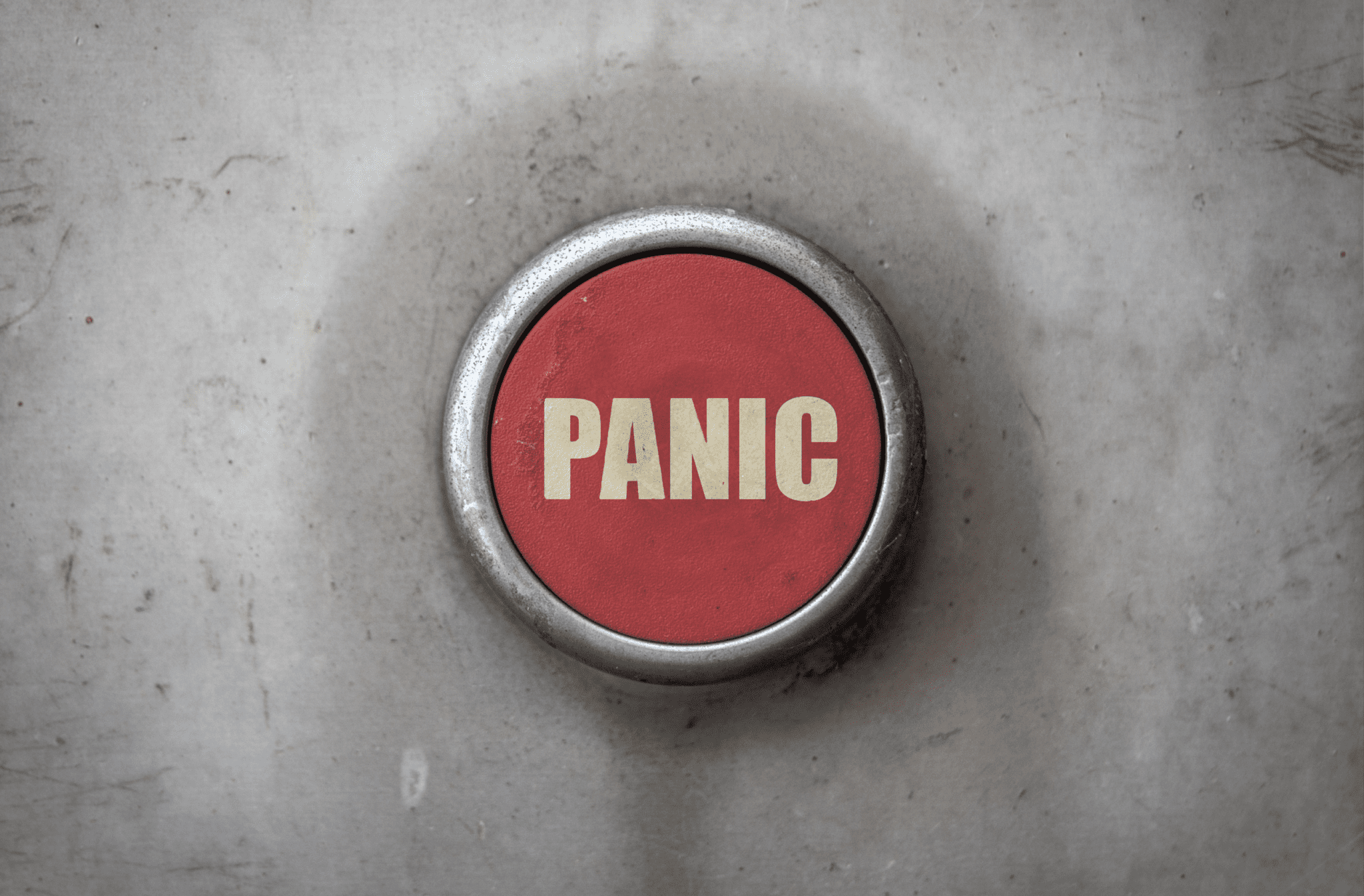What is GAD?
Generalised Anxiety Disorder (GAD for short) is a type of anxiety characterised by Excessive and Uncontrollable Worry. The focus of the worries can jump around over the years and cover a wide variety of topics/triggers. But there’s one common theme amongst all the worries – they are all worst-case scenarios, thoughts of how things will go wrong – which as you can imagine is quite depressing and incredibly draining.
What are the symptoms of worry?
Because when we worry, we are living in a state of fear of the “what if…’s”, our body’s response will be to stay alert, it’s trying to prepare us to deal with all these imagined disasters. What comes with this is digestive problems, sleep problems, muscle tension, difficulty concentrating, exhaustion and more. Most worriers will have worried in some way for a long time, but as the years pass, often the physical symptoms become more problematic, and this is often the driving force for people seeking help.
How much worry is too much worry?
Everyone worries, the same as everyone gets sad at times, or angry at times. It is an emotion that is a normal human experience. We need a little worry or anxiety to stay alive and stop us making reckless choices. But in Generalised Anxiety Disorder (GAD), this worry is out of proportion with the situation, and disconnected with the reality, being led by fear rather than fact. The worry is there most if not all days and takes up a lot of your time and energy. Perhaps others have mentioned that you worry too much, or even when there’s nothing to worry about you still can’t switch it off. It’s likely common for you to not be able to relax, struggle to sit still or settle. These are all signs that you worry too much.
Excessive worry is a real stealer of joy, it distracts us from appreciating our successes, revelling in the happy moments, and getting excited about things, because instead our mind is overthinking all the possible ways things could go wrong.
What things do worriers worry about?
Worries can cover a huge range of topics, and this list isn’t exhaustive, but gives some examples.
* What if I’ve forgotten something?
* What if I’m late?
* What if they don’t like me?
* What if I get sacked?
* What if they hurt themselves?
* What if it’s something serious that’s wrong with me? What if it’s cancer?
* What if I make the wrong choice?
* What if they end up in an accident?
* What if no one enjoys themselves?
* What if the train/plane gets cancelled?
* What if it’s a scam?
* What if I die and my kids don’t cope?
* What if there’s a terrorist attack?
* What if I don’t get it all finished in time?
* What if something goes wrong that I could have prevented?
For worriers, the process doesn’t just stop at these initial thoughts though. It’s often a domino effect, where one worry leads to another, and another, each time getting worse in imagined outcome. For example – What if I’m late, could lead to worrying if someone gets angry, and then the friendship ending, and you never seeing them again. Or – What if my partner is in a car accident, leading to worries of them dying, then the bills not being paid, and of you losing your home.
Why do I worry?
Most worriers will say that they don’t want to worry as much as they are, that when others say to them “stop worrying, it will be fine”, that they really wish they could. Most will also know that they worry too much, and that a lot of the things they worry about were a waste of time.
So if you know all this logically, why do you keep find yourself worrying all day every day? Well there’s two parts of our thinking, our rational and our emotional.
The emotional part has got stuck on believing things like:
* Worry will help me be better prepared
* Worry makes me a better parent/partner/employee
* Worry just means I care
* Worry motivates me
* Worrying helps prevent things from going wrong
* Worry allows me to plan ahead
It’s these beliefs above that are one of the parts that we want to tackle in therapy. Sessions help you to listen more to the logical, to disengage with the scenarios you are imagining, to stop the constant overthinking.
How else does worry effect people?
In Cognitive Behavioural Therapy (CBT) we look at anxiety from two different angles, one is what we’ve covered above – the way we think, the other is the way we act.
It makes sense that if you are worried about how things could go wrong all the time, that there’s going to be changes in how you live your life.
Here are some examples:
* Seeking reassurance from others
* Double/triple checking things
* Researching things
* Avoiding or procrastinating decisions
* Always doing something, not sitting still
* Checking up on people
* Asking others opinions
* Trying to do lots of things at once, flitting between
* Avoiding certain conversation topics
* Avoiding places or activities with perceived risks
* Warning others of things that could go wrong, or to be careful
* List making
* Over apologising
* Difficulty delegating/letting others help
* Being overprotective of others
* Wanting all information in advance
* Trying to control everything
* Avoiding trying new things
What are some helpful things to know about worry?
Our brain can be persuaded to believe anything, regardless of truth or reality, as long as a message is reinforced enough times. As a worrier there are two ways you reinforce the message of fear to your brain – 1. By engaging with the thoughts, 2. By acting as if the worries could be true. In order to break the cycle of worry, these two things need to change. This is what treatment in Cognitive Behavioural Therapy (CBT) will focus on – helping you to stop engaging with your worries, and helping you to stop acting as if they are true.
There are three themes in Worry Triggers – uncertainty, lack of control and change. When something makes us feel uncomfortable, our natural response will be to try to make it feel better in that moment, understandable right? This would be trying to get more certainty (asking questions, researching, getting reassurance), trying to get more control (list making, plan making, not delegating), or trying to avoid any changes where possible (stick to the familiar, avoid spontaneity, avoid new experiences). The problem is that life is full of uncertainty, things beyond our control, and unexpected change. The more we try to avoid these experiences when we can, the harder they become to deal with when we can’t. You might have wondered before how others can be so carefree – it comes from experience, they’ve had lots of experience of the situations you avoid, and have built confidence as a result.
Worry isn’t your identity, it isn’t your personality, it isn’t who you are. Underneath the worry is a person with desires that often are the exact opposite to the ways the anxiety and worry is causing them to live their life. How often have you thought “I wish I could just …” but the worries got in the way? This shows us it’s not who you are. Therapy is about helping you to become more of the real you, to lift the anxiety so that you get to live the life you desire.
Treatment for worry isn’t intended to stop you worrying all together. As discussed earlier we all need some worry. Instead work is focused on trying to scale your worry back to a healthy and manageable amount, so that it no longer interferes with your life, no longer saps your joy and energy.
—
Now you’ve understood a bit more about worry, and also read about how therapy can help, if you’re ready to make changes, book in your free phone consultation at Book Now | Hannah Paskin (hannahpaskintherapy.co.uk)
Other useful blogs:
Perfectionism: How Can it Manifest? | Hannah Paskin (hannahpaskintherapy.co.uk)
Exposure therapy – Anxiety Treatment | Hannah Paskin (hannahpaskintherapy.co.uk)
What is OCD? and understanding ERP Therapy | Hannah Paskin (hannahpaskintherapy.co.uk)








